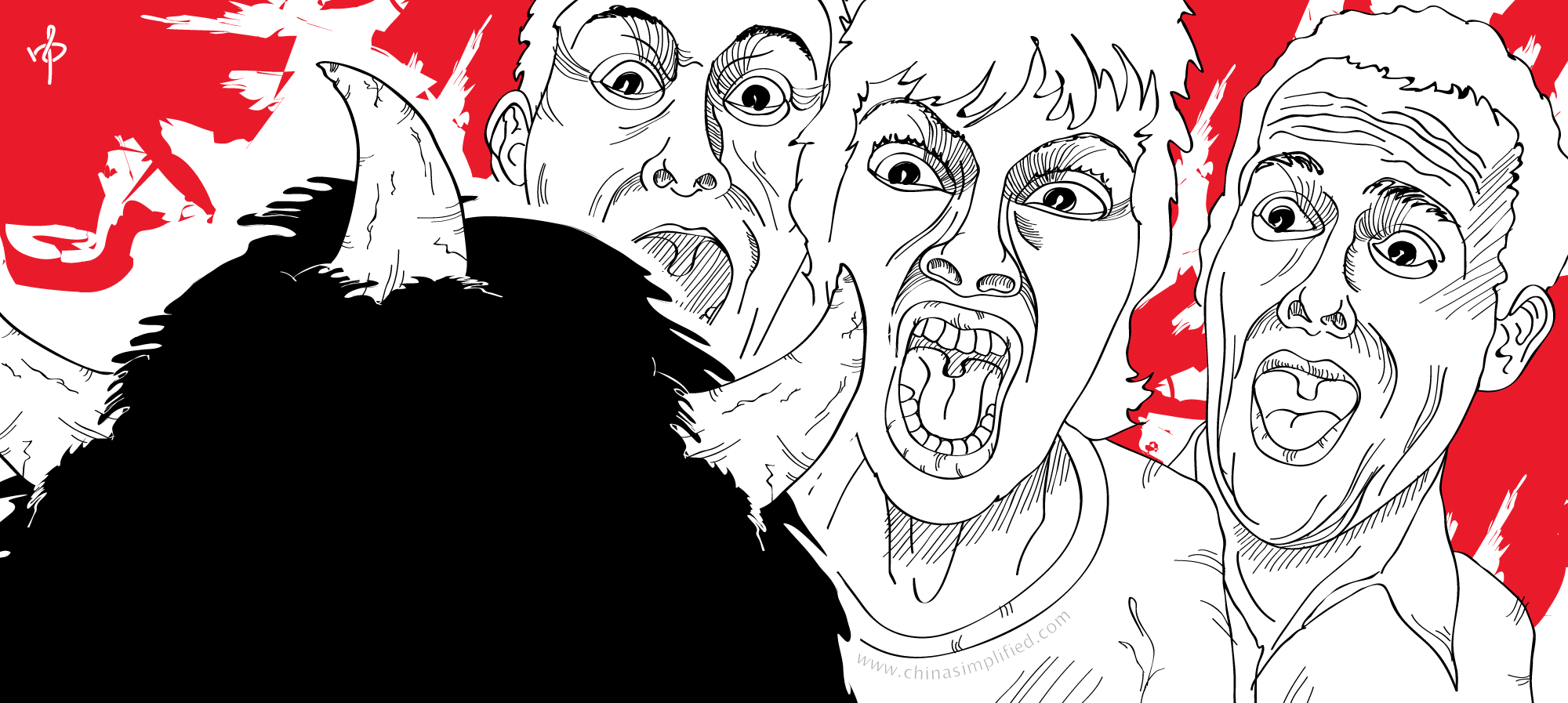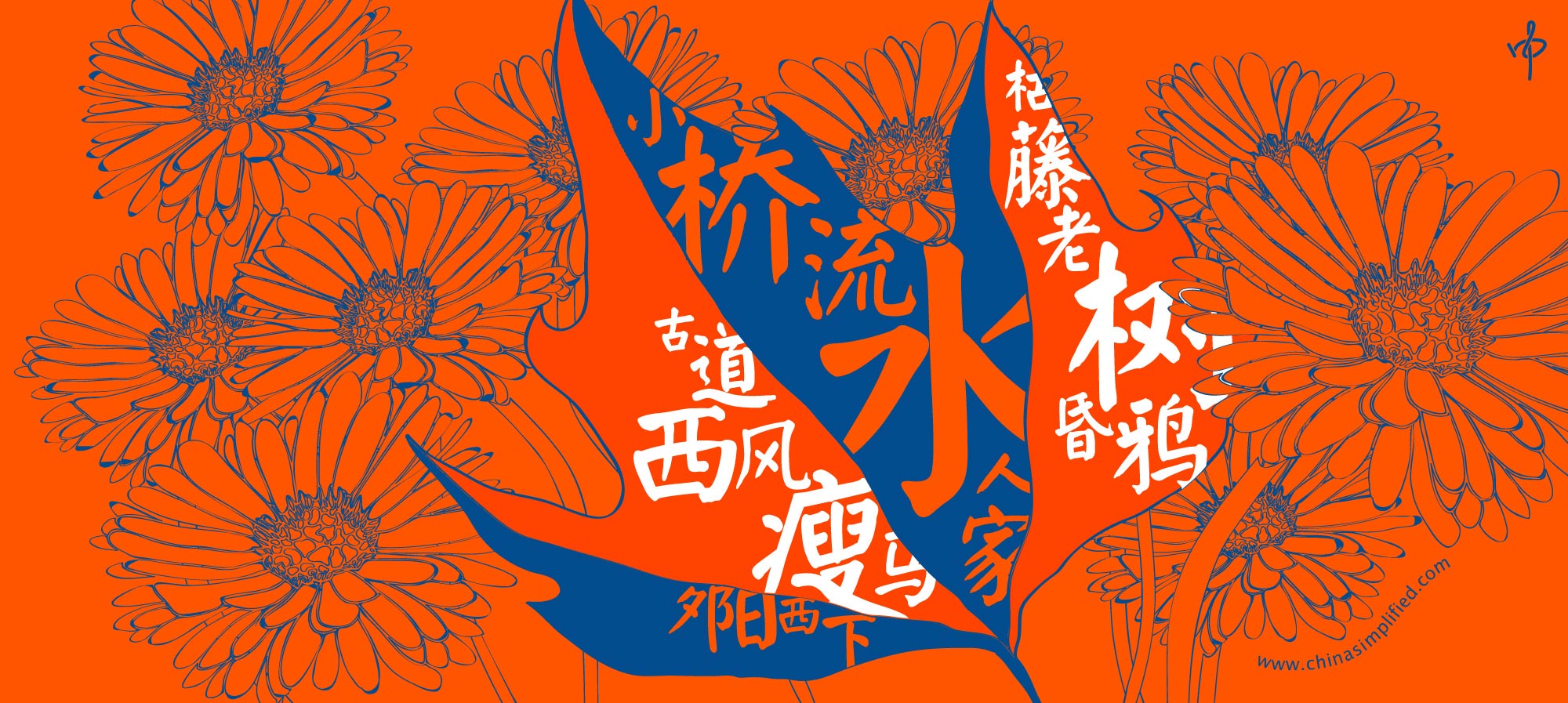Over the Halloween weekend, be sure to avoid these four horrifying apparitions that want to suck all your energy, steal all your food or drag you into a watery grave!
We couldn’t resist sharing these spine-tingling tales with you, courtesy of Olivia Bullock (艾文婷) at The World of Chinese:
1. Jiangshi (僵尸 jiāngshī)
You’ve made the mistake of walking alone after dark in the woods. In the distance, you hear a faint thud, then quiet. Then another leaden thump, like someone with heavy boots just jumped. You walk faster, scanning the trees on either side of the path. The thuds continue, quicker and louder, and you freeze. Suddenly, a figure emerges from the side of the path – a rotting human corpse covered in green mold, still wearing tatters of ancient clothes. Arms outstretched, it lunges toward you and you close your eyes.
Literally meaning, “stiff body” the jiangshi are corpses of those who died wrongfully or who weren’t given proper funeral rites. These zombie-like creatures aren’t interested in your brain — instead, they’re after your soul. Inspired by Qing Dynasty Daoist mythology, jiangshi kill living creatures to absorb their qi. They can’t flex their rigor-mortised limbs, so they have to hop everywhere they go. While this might initially sound silly, they’re characterized as relentless pursuers.
2. Hungry Ghosts (饿鬼 è guǐ)
It’s Ghost Month, and you’ve forgotten to take the proper precautions to guard yourself against any wayward undead. At a crossroads one warm evening, a figure looms before you: a man with a tiny, malformed mouth, and a too-long, skinny neck. His fat belly bulges under his shirt. The man looks at you plaintively. “Can’t I have some food? I’m staaaarving.” You don’t have any food, so you tell him no. After that night at the crossroads, your find yourself cursed: your spouse falls deathly ill, your business fails, and your house is set for demolition.
Hungry ghosts stories originate in Buddhism. They were a personification of ravenous desire: a massive stomach but a mouth and throat too tiny to ever fill it. Overtime the imagery evolved, and hungry ghosts became the restless spirits of those who had sinned in a previous life. Hungry ghosts return to walk the earth during Ghost Month, and if you take proper precautions against them, you can easily outwit their tricks.
3. Nü Gui (女鬼 nǚ guǐ)
You’ve just moved into a house in the countryside with a terrible story attached–ten years ago, a woman was murdered here by her husband. The first night you spend in the house, you awaken in the middle of the night to see a woman in white standing in the corner of your bedroom. The next morning, you assume you just dreamt her. You see her again and again, though, reflected in mirrors, in the corner of your eye.
A nü gui is a woman who was wronged while she was alive, usually murdered or sexually abused, and seeks revenge in her afterlife. Sometimes they haunt the person who hurt them, but usually they’re attached to a particular place or item. Nü gui gained Western recognition from Japanese films such as The Grudge and The Ring. Occasionally, nü gui are portrayed less like vengeful spirits and more like succubi, spectral women who prey on men and absorb their yang, just before killing them.
4. Shui Gui (水鬼 shuǐ guǐ)
Outside of your village is a small pond, which no one ever visits. One day, you decide to fish there, and set up your stool and your rod. As you sit by the waterside, a face materializes from the murk and blinks huge, frog-like eyes at you. You feel a slimy hand grasp your ankle, and in a flash it pulls you into the water, dragging you deeper than you thought the pond could ever go.
Shui gui are “water ghosts” and are the spirits of those who’ve drowned. Only once a shui gui lures another person to their death by drowning will their spirit be free (替身 tì shēn, “replace the body.”) At that time, the spirit will return to the world of the living, while the hapless victim will become a new shui gui. In this way, shui gui create a cycle of bad luck and dangerous places.
China Simplified wishes you a ghostly trick-or-treating party weekend where you (not those four Chinese ghosts) scare all your friends.
Learn more about and keep track of
Upcoming Chinese Festivals and Other Holidays.










As a filmmaker inspired by Chinese folklore, ‘my film Malice’ explores the realm of vengeful spirits. We aimed to capture the essence of these haunting stories, blending horror with contemporary storytelling. If you’re intrigued by Chinese ghost tales, you might find ‘Malice: Nu Gui’ to be an intriguing experience.
Malice is free to watch on Tubi: https://tubitv.com/movies/100005016/